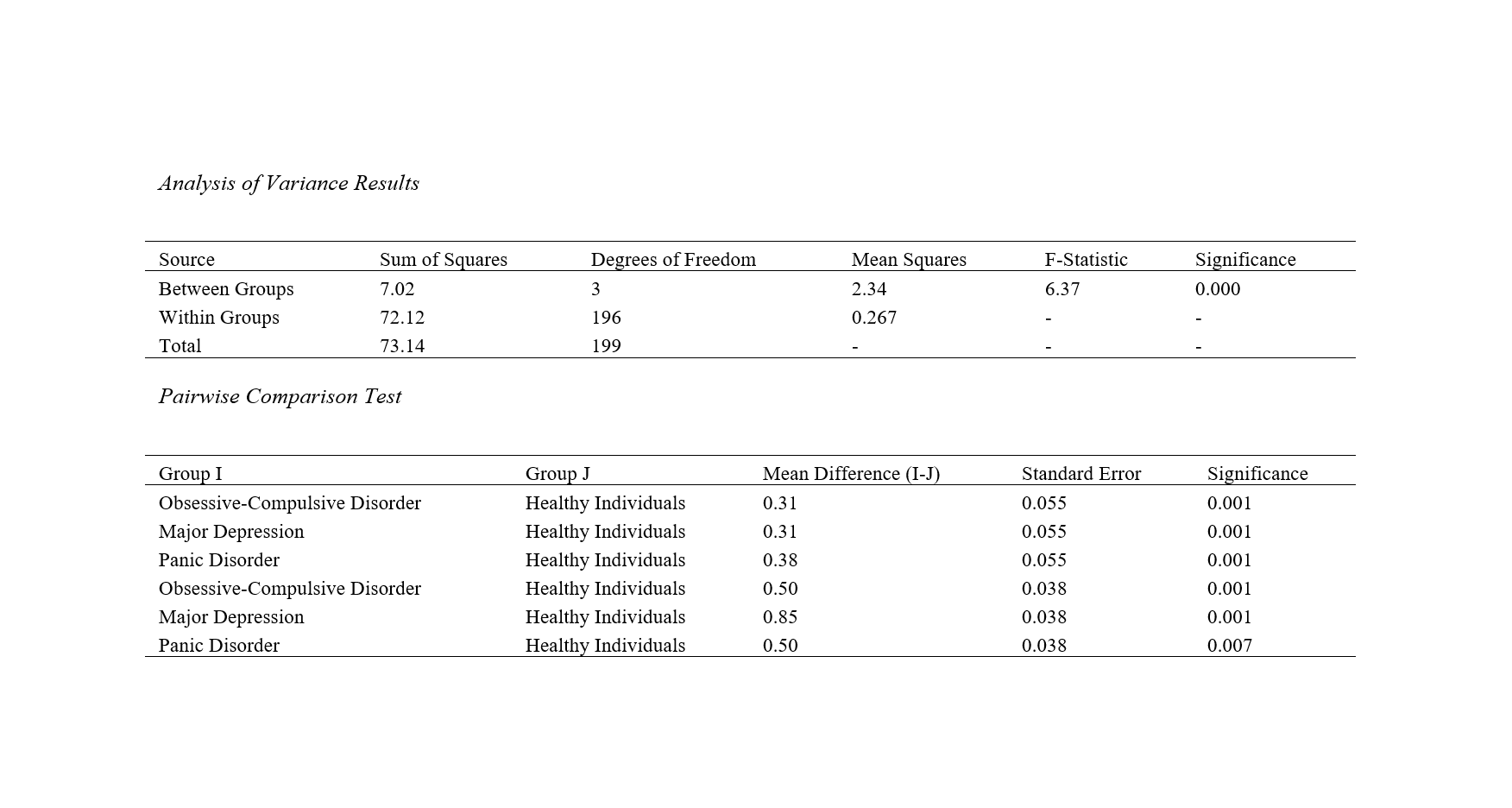Comparison of Behavioral Systems and Thought Control in Individuals with Obsessive-Compulsive Disorder, Major Depression, Panic Disorder, and Healthy Individuals
Keywords:
Behavioral systems, thought control, obsessive-compulsive disorder, major depression, panic disorderAbstract
Objective: The purpose of this study was to compare behavioral systems and thought control among individuals with obsessive-compulsive disorder, major depression, panic disorder, and healthy individuals.
Methods and Materials: The method of the current research was applied in terms of purpose and descriptive-post-event in terms of implementation. The study population included all individuals attending neurology and psychiatry clinics in Qom during 2021-2022. In this study, a total of 200 individuals were selected as the sample (individuals with obsessive-compulsive disorder: 50, individuals with major depression: 50, individuals with panic disorder: 50, and healthy individuals: 50) using a non-random and convenient sampling method. The research tools included the Carver and White (1994) Behavioral Systems Questionnaires and the Wells and Davies (1994) Thought Control Questionnaire. The research data were analyzed using the SPSS-24 statistical software, through descriptive and inferential statistics, specifically the multivariate analysis of variance.
Findings: The results of the analysis indicated that behavioral systems and thought control vary among individuals with obsessive-compulsive disorder, major depression, panic disorder, and healthy individuals.
Conclusion: Therefore, in the current study, thought control varies among individuals with obsessive-compulsive disorder, major depression, panic disorder, and healthy individuals.
Downloads

Downloads
Additional Files
Published
Submitted
Revised
Accepted
Issue
Section
License
Copyright (c) 2024 Zahra Sabokbar, Shahnam Abolghasemi, Abdolhassan Farhangi (Author)

This work is licensed under a Creative Commons Attribution-NonCommercial 4.0 International License.








